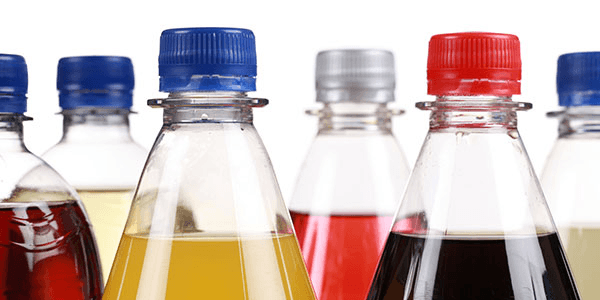[ad_1]
A 56-year-old diabetic patient, Arch. Oladejo Olajide, never knew what he was doing to his health when he was consuming at least two bottles of soda everyday. “I was so addicted to it,”Olajide averred.
Though, his close friends and relatives told him about the dangers of consuming excessive Sugar-Sweetened Beverages (SSBs), but he turned a deaf ear to their repeated warnings. It is sad to know that, Olajide is now paying for it.
“I got very sick one day and I was rushed to the hospital. On getting there, I learnt that my sugar level was over 500. The doctor told me that I have diabetes. Diabetes has no cure, so I have to be on insulin all the rest of my life,“ he lamented.
Sadly, Olajide is a retired civil servant, surviving on my meagre pension allowance, which is never enough for his treatment per month.
“If only I knew that I wasn’t enjoying myself; that I was only consuming poison; if only I had yield to the repeated warnings of my relatives, I won’t have been in this situation. I have indeed learned a hard lesson, too bitter to chew,“ he stated.
Explaining how consumption of SSBs could lead to Non-Communicable Diseases (NCDs), a study titled: “Drink soda, gain weight: Sugary beverages very clearly tied to obesity,” reviewed 85 studies from the past decade that looked at sugary beverages and weight gain among adults and children. The study which track people’s health outcomes for long periods of time, showed that each serving-per-day increase in sugary drinks had an association with an almost one-pound increase in body weight among adults.
The glob of sugar increases blood glucose levels, which triggers a glycemic response that, over time, could cause insulin resistance and diabetes, the study revealed, adding that the fructose in added sugar impacts the liver and increase a person’s risk of fatty liver and metabolic disease. “Fructose also elevates uric acid levels, which is another driver towards insulin resistance and other diseases. Spikes in insulin can, in turn, affect your appetite and encourage overeating that leads to excess insulin in the blood.
“On the other hand, being overweight or obese increases a person’s risk for several health problems, including diabetes, heart disease and cancers. One of the reasons for these negative health outcomes is the makeup of added sugar,” it stated.
Corroborating the findings of the study, Dr Francis Fagbule, at a journalism training on SSB Tax and Industry Monitoring, organised by the Corporate Accountability and Public Participation Africa (CAPPA), Sugar Sweetened Beverages Tax Coalition and Global Health Advocacy Incubator (GHAI), said sugar sweetened beverages are loaded with high calories with no nutritional value.
“Because of the high calories consumed in SSBs, it leads to excessive weight gain. SSBs’ liquid sugar is easily absorbed into the body, those sugars alter the body’s metabolism, affecting insulin, cholesterol, and metabolites that cause high blood pressure and inflammation and is linked to the increasing rate of obesity and diabetes in the country,” Fagbule stated.
He disclosed that several studies, have showed a tremendous increase in NCDs. For example, a national study has showed that less than one million Nigerians was diagnosed of having type 2 diabetes in 1990, but in 2022, we are talking about six million adult Nigerians that are living with the condition.
“We can prevent NCDs like diabetes when we reduce the intake of junk foods and artificial sugar consumption. It is important that steps are taken to address these public health challenges and one of the ways to prevent this burden is through taxation of SSB,” he stated.
He applauded the federal government for enforcing the 30 per cent and valorem plus N84 per pack of tobacco; N40/litre tax on beer; N50/litre on spirits, while advocating an increase of N20/litre on SSB products.
“Though this demonstrates a holistic approach to addressing the common risk factors of NCDs, there is need to increase the tax on SSB from N10/litre to N20/litre, and then subsequently increase it to meet the recommendations of the WHO, which is 20 per cent tax on SSBs. This will lead to better economic gain for individuals and the country and the fund should be devoted to strengthening the health system,” he averred.
Meanwhile, the National Sugar Sweetened Beverages Tax Coalition, made up of over 30 NGOs and public health professionals across the country is asking the government not to succumb to cheap blackmail of an industry that places profit above the health of its people.
The executive director, CAPPA, Akinbode Oluwafemi, however, urged the government to stand firm, in defending the health of the country by enacting the proposed N20/liter into law.
“Beyond the yearly Finance Act process, the federal government should institute a sustainable legal framework for SSB tax with clear timelines for attaining the WHO recommended 20 per cent of retail price ,” Oluwafemi added.
[ad_2]
Source link



